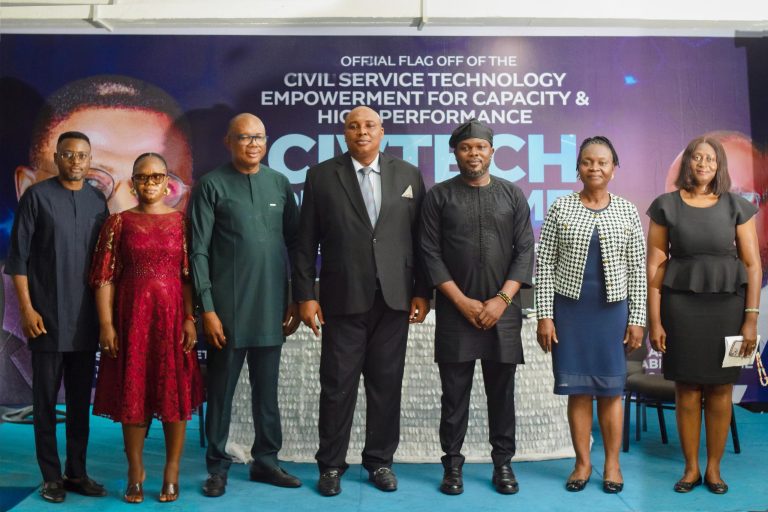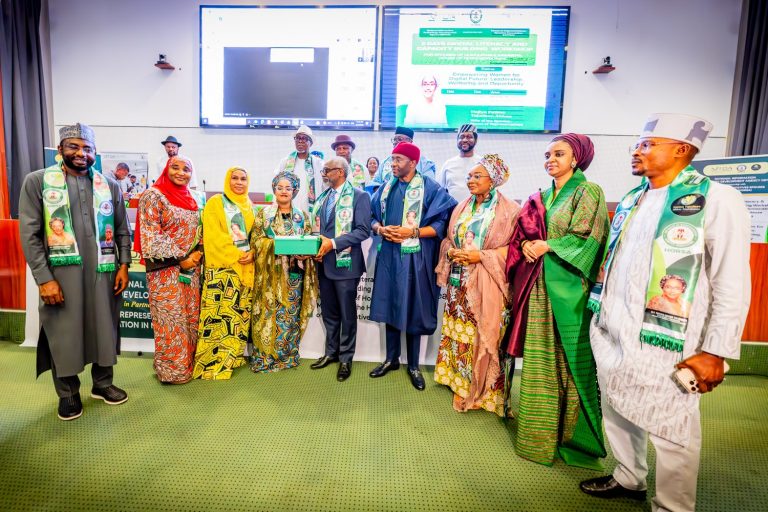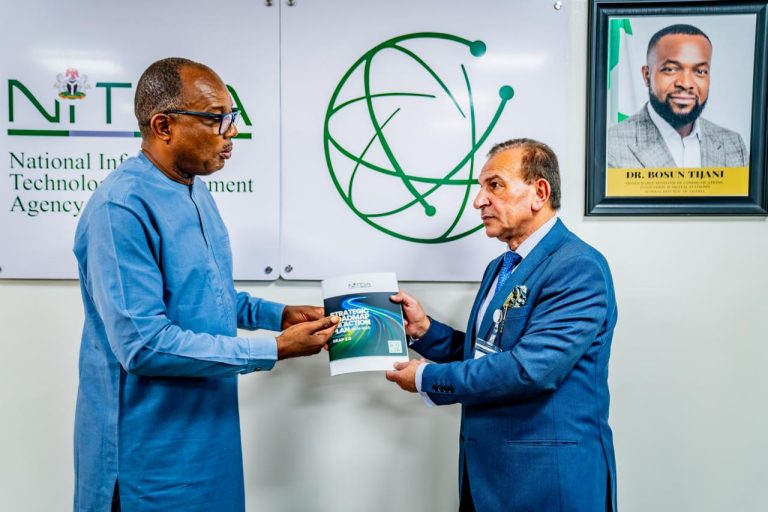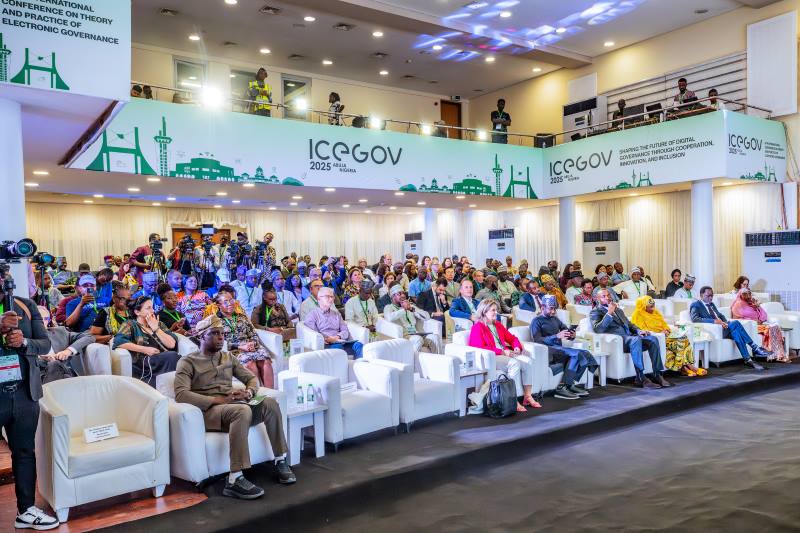
The Director General of the National Information Technology Development Agency (NITDA), Kashifu Inuwa, CCIE, has reaffirmed Nigeria’s determination to lead Africa’s digital governance transformation, highlighting research, collaboration, and digital literacy as key enablers of inclusive national development.
This reaffirmation aligns with the presidential redefined priority areas of Reforming the Economy for Sustained Inclusive Growth, Enhancing Infrastructure as an Enabler of Growth, Improving Governance for Effective Service Delivery, and Accelerating Economic Diversification through Digitalisation, Industrialisation, Creative Arts, Manufacturing, and Innovation.
Inuwa made this known at the opening of the 18th edition of the International Conference on Theory and Practice of Electronic Governance (ICEGOV) 2025, held at the Shehu Musa Yar’Adua Centre in Abuja, Nigeria. Themed “Shaping the Future of Digital Governance through Cooperation, Innovation, and Inclusion,” the conference marks the first time the event is being hosted in West Africa.
Established in 2007, ICEGOV serves as a global platform that brings together academia, government, international organisations, civil society, and industry to share insights and experiences in the practice of electronic governance. The conference fosters collaboration across disciplines and cultures to address complex global challenges, with a focus on sustainable development, social inclusion, and active citizenship.
Describing the event as a “remarkable milestone” in Nigeria’s digital transformation journey, Inuwa said:
“Tonight, marks a remarkable milestone in our journey to making Nigeria a leader in digital governance. Our participation in previous ICEGOV events inspired us to take on the challenge of hosting the 2025 edition — the first ever in West Africa.”
He recalled that Nigeria’s growing engagement with ICEGOV was inspired by the vision of the Minister of Communications, Innovation and Digital Economy, Dr Bosun Tijani, who directed NITDA to expand its involvement beyond attendance to active research and knowledge-sharing.
“The Honourable Minister believes that if we truly want to build a robust and sustainable economy in the digital era, we must invest deeply in research and innovation, particularly in deep tech,” he noted.
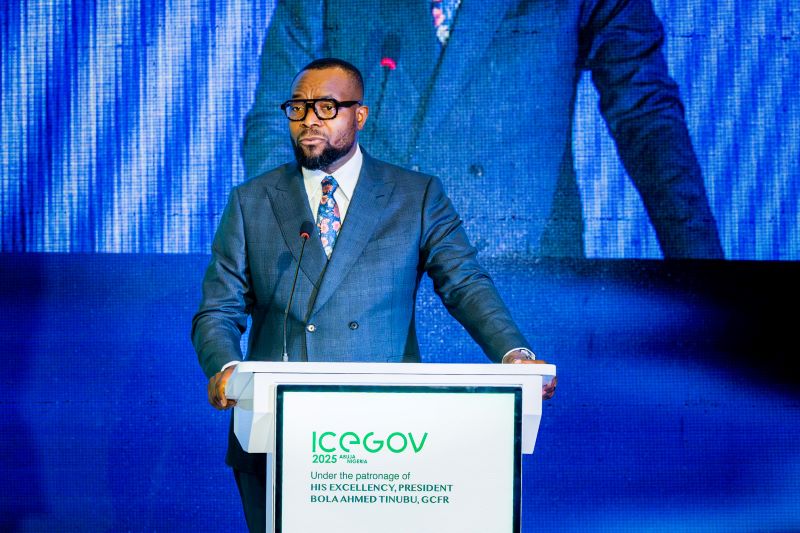
Inuwa explained that hosting ICEGOV 2025 aligns perfectly with President Bola Ahmed Tinubu’s Renewed Hope Agenda, which emphasises economic diversification through technology, industrialisation, creativity, and innovation. He added that co-creation and collaboration remain central to the Ministry’s policies to ensure that digital solutions reflect the needs of citizens.
He further noted that the conference’s theme mirrors the Ministry’s Strategic Plan of Accelerating the Nation’s Collective Prosperity through Technical Efficiency, anchored on five pillars — Knowledge, Policy, Infrastructure, Trade, and Innovation, Entrepreneurship & Capital.
Inuwa also underscored the country’s youth advantage, pointing out that Nigeria’s young, digitally savvy population is key to sustaining growth.
“Digital transformation is not just about technology — it’s about improving how we serve our citizens. Governance must meet people where they are, which is online. Our goal is to build trust, efficiency, and better service experiences,” he said.
To support this vision, the NITDA boss outlined several ongoing initiatives, including:
- The National Digital Literacy Framework, aimed at ensuring all Nigerians acquire digital skills from early education to adulthood.
- A partnership with the Ministry of Education to integrate digital literacy into school curricula by next year.
- A collaboration with the Office of the Head of the Civil Service of the Federation to train all public servants, with over 24,000 already enrolled.
- Nationwide digital inclusion campaigns targeting market traders, transport workers, senior citizens, and faith-based groups.
He reaffirmed NITDA’s commitment to promoting knowledge exchange and collaboration across Africa, calling for a united continental effort toward digital self-determination.
“Our goal is to build the capacity, infrastructure, and right policies for Africa’s digital self-determination. ICEGOV gives us the platform to learn, share, and shape that future together,” Inuwa concluded.


